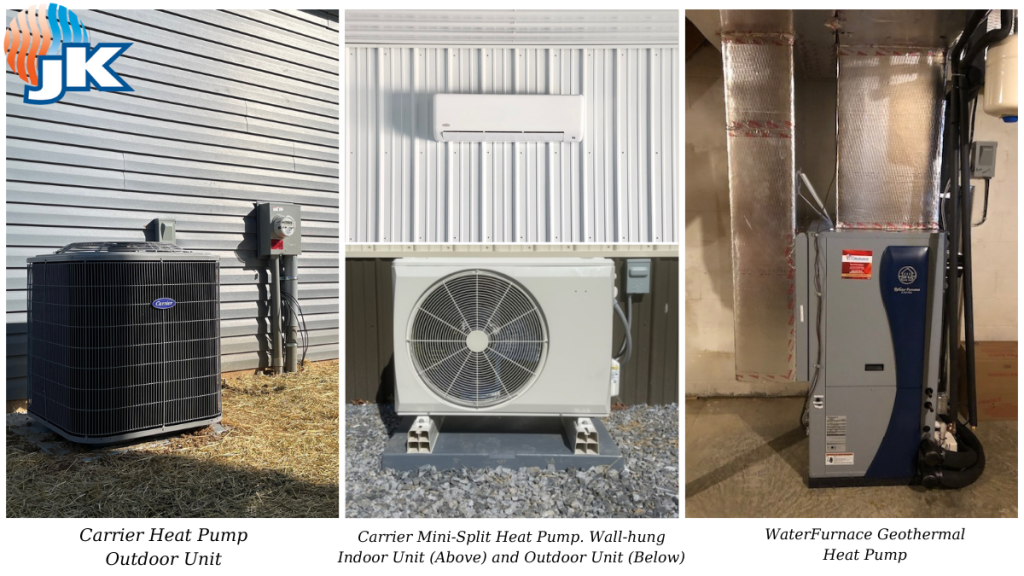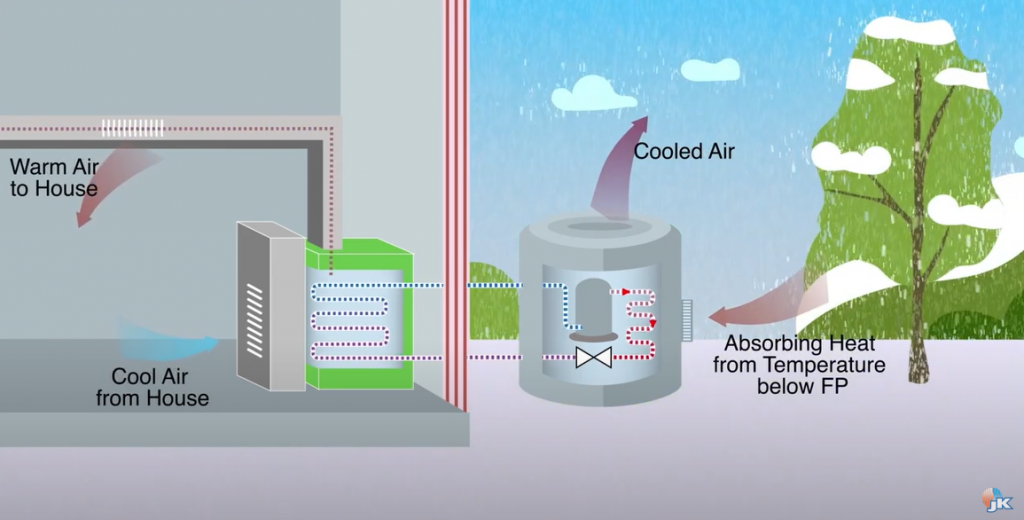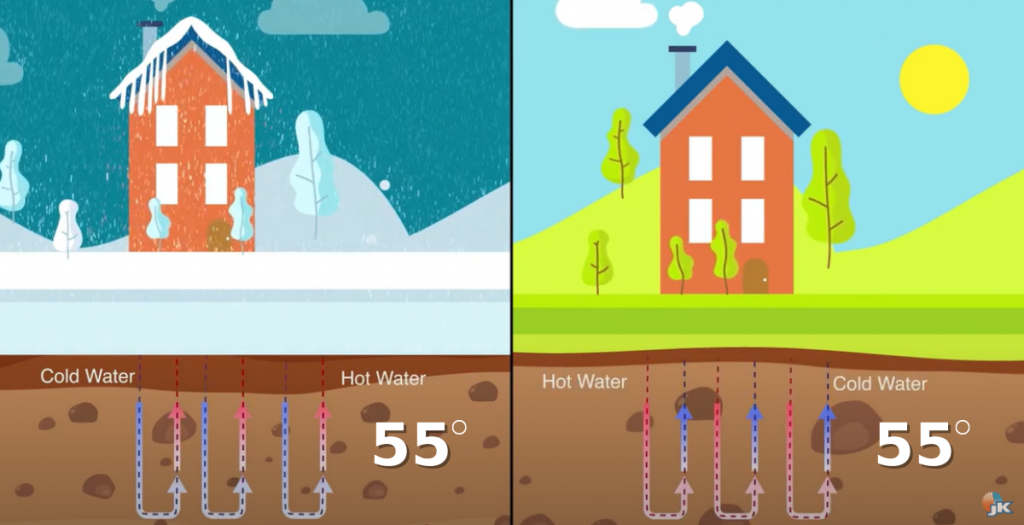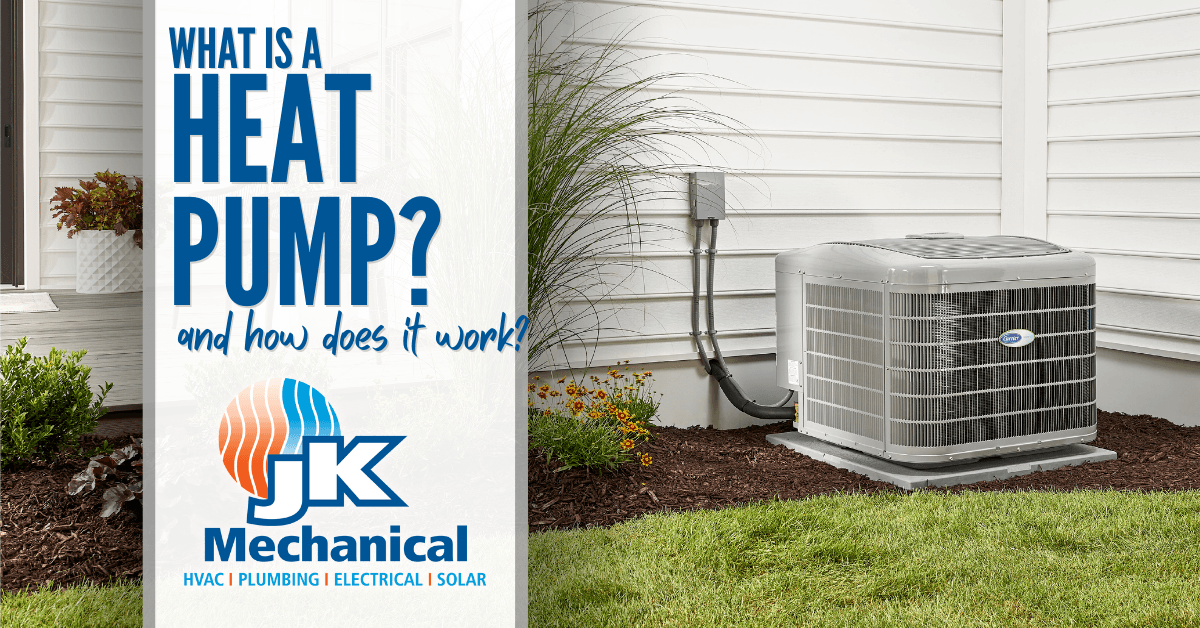How Does a Heat Pump Work?
JK Mechanical has been installing smart, efficient HVAC solutions for our clients since 1979. According to the EIA, as of 2015 about 36% of Americans use electric heat pumps for their home heating and cooling.
With new and ongoing incentives for installing high-efficiency equipment, you may be wondering if it’s time to install a heat pump, or perhaps you have one now and would like to learn more about how it works. Continue reading for an explanation of what a heat pump is, and how it works to keep you and your family comfortable all year round:
First: What is a heat pump?
A heat pump is a type of heating and cooling system. They can come in many forms, from the most common whole home system with an outdoor unit and a single indoor unit, to a mini-split system with one outdoor unit and multiple indoor units, to a geothermal heat pump that consists of just one indoor unit and an underground well loop.
Despite what you might guess from the name, heat pumps can cool your home in addition to providing heat. Heat pumps are powered by electricity and transfer heat using refrigerant to provide comfort all year round. Heat pumps do not burn gas, oil, or propane like furnaces and many boilers and have no combustion element, making them a good choice for homeowners concerned about reducing their reliance on fossil fuels.
How does it work?
Heat pumps do not create heat, which is part of why they don’t need to rely on combusting fuel and part of why they can be so efficient, because it takes less energy to move heat than to create it. Heat pumps redistribute heat from the air or ground nearby. This is accomplished by using a refrigerant that circulates between the indoor fan coil (or air handler) and the outdoor unit to transfer the heat. That transfer can happen in either direction, which is why heat pumps can provide cooling in the summer as well as heat in the winter.
In cooler months, a heat pump pulls heat from the cold outdoor air (or ground) and transfers it indoors, leaving you with comfortable, warm air inside. In summertime, it removes heat from your indoor air and transfers it outdoors, to cool your home.
The laws of thermodynamics are a key part of how HVAC systems work. An important principle to understand is that heat energy naturally wants to move to areas with lower temperatures and less pressure. Heat pumps rely on this physical property, putting heat in contact with cooler, lower pressure environments so that the heat can easily and efficiently transfer.
Is a geothermal heat pump different?
A geothermal heat pump operates with the same basic principles as a standard heat pump. The key difference is that instead of transferring heat to or from the outdoor air via the outdoor unit, geothermal heat pumps transfer to or from the outside ground or water, depending on the type of equipment. Geothermal is exciting technology because it uses the renewable, consistent ground temperature of 55 degrees as a heat transfer source all year long, making them even more efficient than standard heat pumps. Click here to learn more about geothermal and how it works.
Should I install a heat pump?
At JK Mechanical, we strongly believe that there is no one-size-fits-all solution for home comfort. That said, the flexibility and variety of types of heat pumps mean they can be a great fit for many homes and businesses. With ongoing utility and tax incentives for electrification (and even higher for geothermal heat pumps), now can be a great time to install a heat pump. Whether you are looking for whole home heating and cooling or just want to add supplemental comfort to your space, the JK Mechanical HVAC team is here to help design a system that best meets the needs of you, your home, and your budget.
While new technology in heat pumps makes them an excellent solution for many applications, they occasionally cannot provide sufficient heat for drafty, low-insulation properties during the coldest part of the winter, and will rely more on backup heat to keep you comfortable. (This is typically not the case for geothermal heat pumps, as they aren’t working with outdoor air temperatures.) In some applications, the JK team will install a hybrid system, so you get the efficient comfort of a heat pump for most of the year, with the peace of mind of the backup heat on the coldest days.
Ready to begin the process of replacing your HVAC system? Contact JK Mechanical today to schedule your free, no-pressure estimate with one of our trained and experienced Comfort Consultants.





